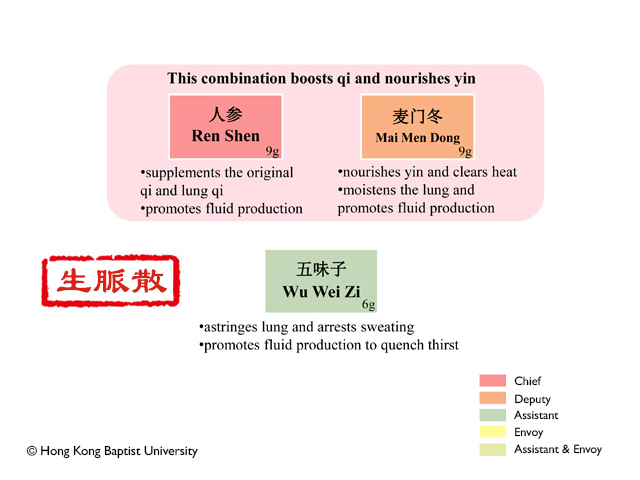Ginseng Root
Ginseng Radix et Rhizoma
Functions:Greatly supplements original qi, restores the pulse, secures desertion, supplements the spleen, benefits the lung, engenders body fluids, stops thirst, quiets the spirit, promotes intelligence. Apply to complete exhaustion due to physical weakness, cold limbs and weak pulse, poor appetite due to splenic deficiency, coughing with asthma due to pulmondeficiency, hydrodipsia due to depletion of body fluids, feverish dysphoria and diabetes, deficiency and weakness due to invalidism, palpitation and insomnia, impotence and uterus cold, cardiac failure, cardiogenic shock.
